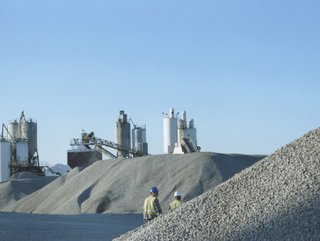US to Invest US$20bn in Industry Decarbonisation

The US Department of Energy (DOE) is spearheading a monumental effort to clean up American industries, with a staggering US$20bn investment. This bold move is part of President Biden's wide-ranging Investing in America agenda, aimed at tackling critical issues while bolstering economic growth and resilience.
The focus of this initiative is squarely on the highest-emitting sectors, with cement and concrete, chemicals, refining, and iron and steel topping the list.
The ultimate goal? Slashing carbon emissions by a jaw-dropping 14 million metric tons annually. To put that into perspective, it's akin to removing the yearly emissions of a whopping 3 million petrol-powered cars from the equation.
“Consumers and companies around the world are demanding cleaner, greener products—made with less pollution, made with recycled materials, built to last,” explains Secretary Granholm at an Announcement Event for the Industrial Demonstrations Program.
“As a nation, we’re now specifically investing to decarbonise these energy-intensive industries like steelmaking, where we can have the greatest impact. Iron, aluminium, cement, concrete, chemicals, food and beverages, pulp and paper processing, are all really energy intensive.
“Together, these industries, the heavy industry sector of America’s economy, emit about a third of our carbon pollution.
“So, as we embark on this mission to revitalise American manufacturing, we don’t want to just make the best products in the world—and we will—we want to make the best and cleanest products in the world.”
Decarbonising cement and concrete
Among the key targets of this ambitious endeavour are six cement and concrete projects set to revolutionise the industry. The DOE envisions deploying a gamut of cutting-edge technologies capable of eradicating all CO2 emissions from existing plants.
First produced in England in the 19th century, Portland cement is the most common type of cement used in construction around the world. Traditionally produced through energy-intensive processes involving limestone, clay, and high-temperature kilns, its carbon footprint is substantial.
Through developing new pathways and materials, the DOE is targeting Portland cement to lead the sector towards zero emissions. By investing in sustainable practices and groundbreaking technologies, the DOE aims to reshape an industry long reliant on emission-heavy processes. Cement, they contend, is not just a building material; it's a cornerstone of our world's infrastructure.
The DOE said: “This will help set the stage for a future where cement – one of the single largest sources of CO2 emissions globally – can be net-negative.
“These game-changing projects will revolutionise a sector that has relied on emissions-intensive processes for millennia.”
President Biden's initiative heralds a new era of sustainable industry, where innovation and investment converge to pave the way for a cleaner, greener future.
******
Make sure you check out the latest edition of Sustainability Magazine and also sign up to our global conference series - Sustainability LIVE 2024
******
Sustainability Magazine is a BizClik brand
******






